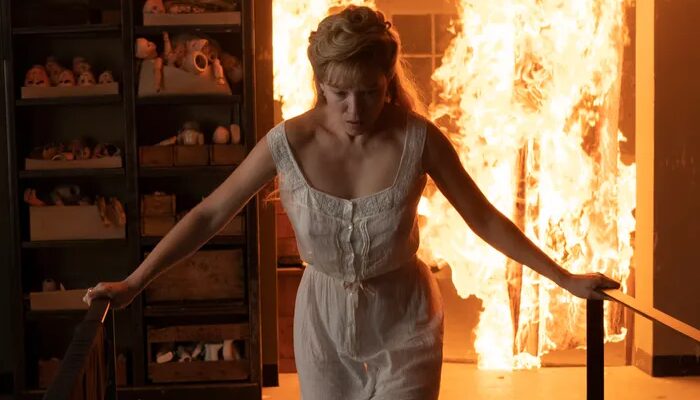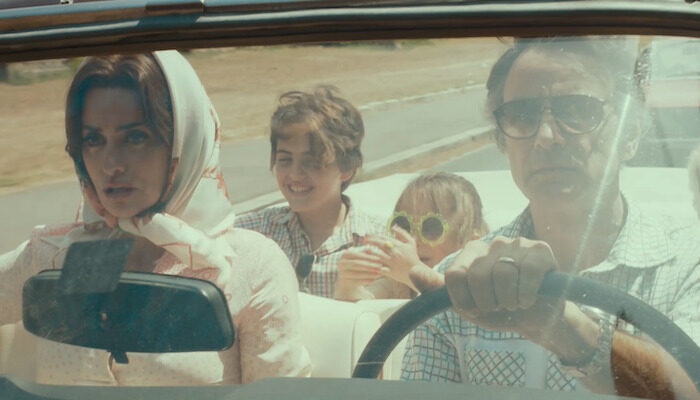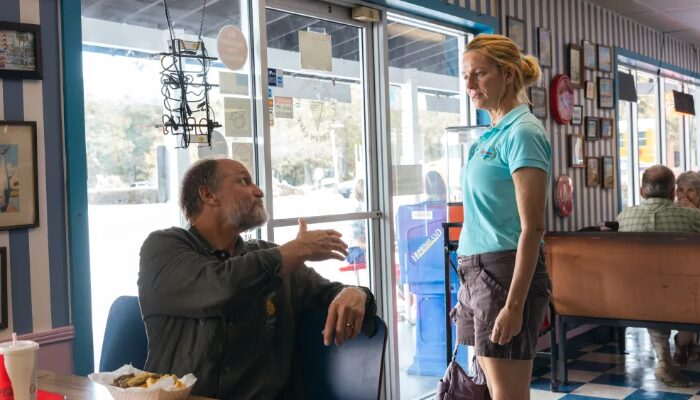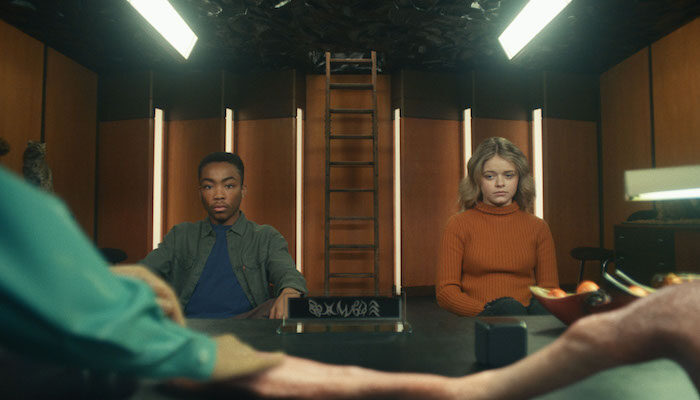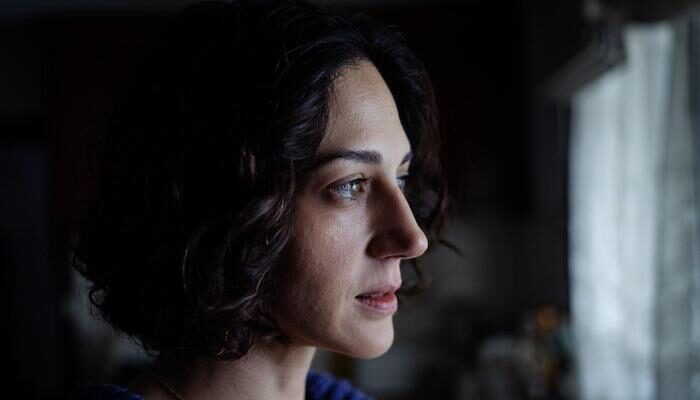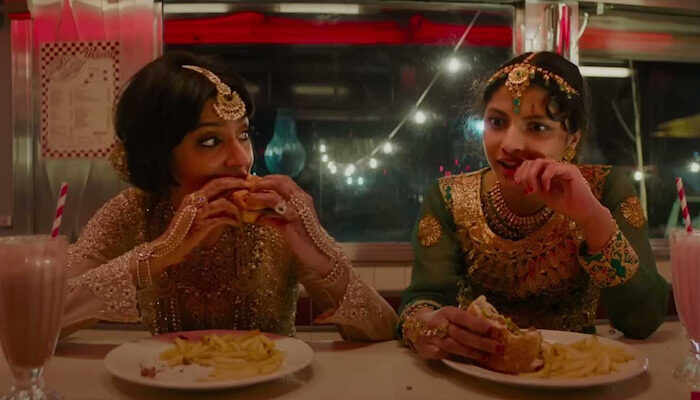Film Review: L’IMMENSITÀ: Intimate Story Sheds Bright Light on Family Issues in the Seventies [Sundance 2023]
L’Immensità Review
L’Immensità (2022) Film Review from the 45th Annual Sundance Film Festival, a movie directed by Emanuele Crialese, starring Penélope Cruz, Vincenzo Amato, Luana Giuliani, Patrizio Francioni, María Chiara Goretti, Alvia Reale, Mariangela Granelli, Carlo Gallo, Rita De Donato, and Clara Ponsot.
Italian director Emanuele Crialese draws on his own experiences to delve into family dynamics with his latest film L’Immensità.
L’Immensità (‘The Immensity’ in Italian) is well named as a powerful, broad-reaching narrative. This film explores the flaws of outmoded conventions, social traditions, and the price of suppression in the context of a society on the brink of redefining gender roles and expectations, as told through the lens of a prosperous Roman family in the 70’s.
Penélope Cruz portrays Clara, an upper middle class housewife trying to hold her family together as best she can for her children’s sake, in particular that of the oldest, Adri, played by Luana Guiliani. With varying success, she manages battles on several fronts. In large part biographical, Crialese explores the roots of social themes that have become so prominent today throughout our global community.
Gender Dysphoria
By far most central to the story, Adri’s dilemma strikes very close to home for Crialese, being trans himself. The mere notion of gender identity, much less a spectrum, hadn’t yet developed wide social context in the 70’s, a time when his experiences paralleled that of his teenaged anti-hero.
The dominance of expected gender conformity explains Clara’s dogged attempt to understand why her oldest child, Adri, insists she should have been born a boy, even referring to herself as Andrew. Out of desperation she and Adri develop a mutually protective fantasy world. Adri feels so disenfranchised she even believes she might be from another galaxy.
Family and friends put down Adri’s fantasy to a phase, played out by an eccentric teen. With Adri on the edge of puberty, things couldn’t be edgier. She shows no desire to divest her Andrew persona, far from it. Under that guise she begins to date Sara (Conti), a pretty, plucky working class girl. But despite some charming flirtation, there is no Boys Don’t Cry type of reveal here; Sara soon moves away, being none the wiser.
Adri stays strong with her fantasy, however, even to the point of envisioning herself and Clara as star performers in very clever song and dance numbers taken from television shows. These wonderfully choreographed sequences provide well-timed jolts of energetic uplift, particularly toward the end.
Clara’s role in the fantasy theme, despite the periods of surface zaniness that her kids enjoy so much, doesn’t play out as well for her in the long run. Husband and father, Felice (Amato), at his wits end from frustration, knocks Clara to the floor on several occasions, without surprise or resistance from Clara or the kids. This is something a modern audience may find incredible yet all too common enough in those days. But It seems natural that Clara would engage in an imaginary world that Adri was indeed male, and by extension all the patriarchal privilege that goes with it.
Feminism & Domestic Violence
Felice’s abusive, philandering behavior goes mostly without challenge, and confrontations provoke violence. But while feminism gained traction in the 70’s, it had yet to fimly coalesce into a widely recognized, supportive movement. Thus ill-equipped, Clara does all she can to protect her children from the realities of domestic abuse, worst (and most familiar) among them: What will the neighbors think? These neighbors — in this case, housewives of the same social standing — had their own special type of solidarity. They might empathize with Clara (perhaps even subconsciously with Adri), but her behavior had clearly gone beyond the pale.
Likewise, Adri fulfills her role in the fantasy by defending Clara in the most peculiar circumstances, among these a truly bizarre intrusion of privacy: sneaking under her parents’ bed in order to emerge and vilify her father’s unwanted advances — a fitting strike for Women’s Lib.
Eating & Defiant Disorders
While Clara occupied herself primarily with Adri’s imaginary world, the siblings rally, more or less sensibly, in the face of family crisis.
Up to this point Gino (Francioni) — next youngest and middle child — is mostly silent, stuffing his face at mealtimes, and it shows; this pudgy 10-year-old tries to assert his (alleged) male-bestowed authority as best he can. At first, when Adri shows romantic interest in Sara as Andrew, he challenges her, not because of duplicity but in legal terms, reminding her of a house rule, just as Dad would: no going into the workers’ neighborhood.
Adri pulls rank and ignores this advice, and Gino counters by defecating in a closet on a couple of occasions. His defiance lies at the threat of emasculation, especially by an older female. Then it falls to the seven-year-old Diane, to make the best peace between them. Every family seems to have someone like this little girl, who picks at her food, but this could also be a red flag for a future bulimic. In any event, the children find a way to win at the game of ‘keeping secrets,’ within the family itself.
Rating: 9.5/10
Leave your thoughts on this L’Immensità review and the film below in the comments section. Readers seeking to support this type of content can visit our Patreon Page and become one of FilmBook’s patrons. Readers seeking more Sundance Film Festival news can visit our Sundance Film Festival Page, our Film Festival Page, and our Film Festival Facebook Page. Readers seeking more film reviews can visit our Movie Review Page, our Movie Review Twitter Page, and our Movie Review Facebook Page.
Want up-to-the-minute notifications? FilmBook staff members publish articles by Email, Feedly, Twitter, Facebook, Instagram, Tumblr, Pinterest, Reddit, Telegram, Mastodon, and Flipboard.
Related Articles
FilmBook's Newsletter
Subscribe to FilmBook’s Daily Newsletter for the latest news!





